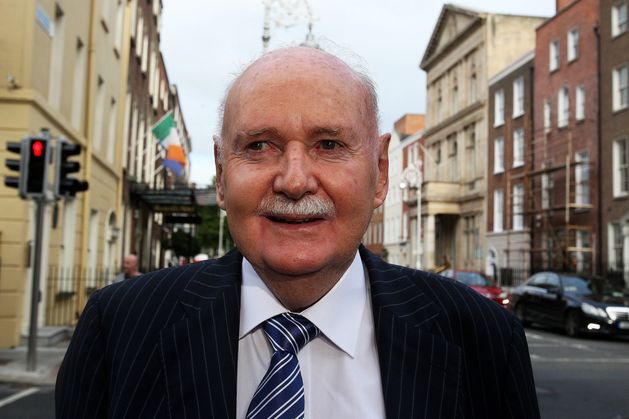Bussiness
Liquidator’s case against ex-Irish Nationwide boss Michael Fingleton put back to next year

Michael Fingleton, former CEO of the Irish Nationwide Building Society, pictured in 2015. Photo: Tom Burke
The hearing of a liquidator’s case against ex-Irish Nationwide Building Society (INBS) boss Michael Fingleton has been put back to early next year, subject to the Supreme Court permitting it to proceed.
The trial had been provisionally listed for October but was yesterday pushed back to January as the parties await judgment on Mr Fingleton’s third bid to have the civil case thrown out because of alleged unfairness.
Previously, the 2012 case was scheduled to take place last March.
The 86-year-old is acting through his wife and son, Michael Fingleton Jr, under their powers of attorney. They took over due to his ill-health arising from a stroke five years ago, and claim the case cannot be properly defended due to his incapacitation and inability to contribute to his defence.
The High Court and Court of Appeal both refused to halt the case initiated in 2012 by the liquidators of the State-owned Irish Bank Resolution Corporation (IBRC), which took over the INBS after it failed.
The appeal court found the octogenarian had not established a real or serious risk of an unfair trial or unjust result.
Mr Fingleton’s lawyers told the Supreme Court last March that the case is missing its key witness, while the IBRC liquidators argued halting a case before trial is a “draconian step only to be exercised in exceptional cases and in clear cases”.
The court has not set a date for delivery of its decision.
The IBRC case alleges Mr Fingleton, as managing director and chief executive, had excessive control over the building society’s business and flouted its lending rules.
The claim was originally pitched at €6bn, the amount lost by the lender after the 2008 property crash. It has since narrowed to about €290m and centres around five series’ of loans issued between 2006 and 2009.
The allegations are denied.
Mr Fingleton Jr has said his father, who was worth €75m in 2006, had less than €25,000 in two personal bank accounts and outstanding judgment debts of more than €10.7m as of late 2022.










